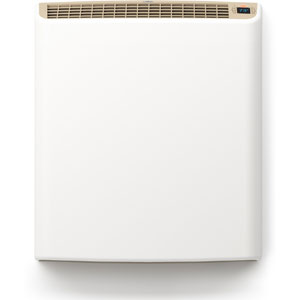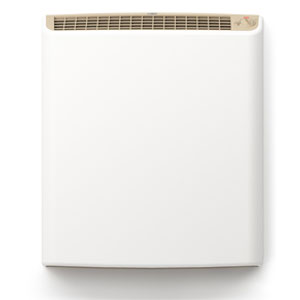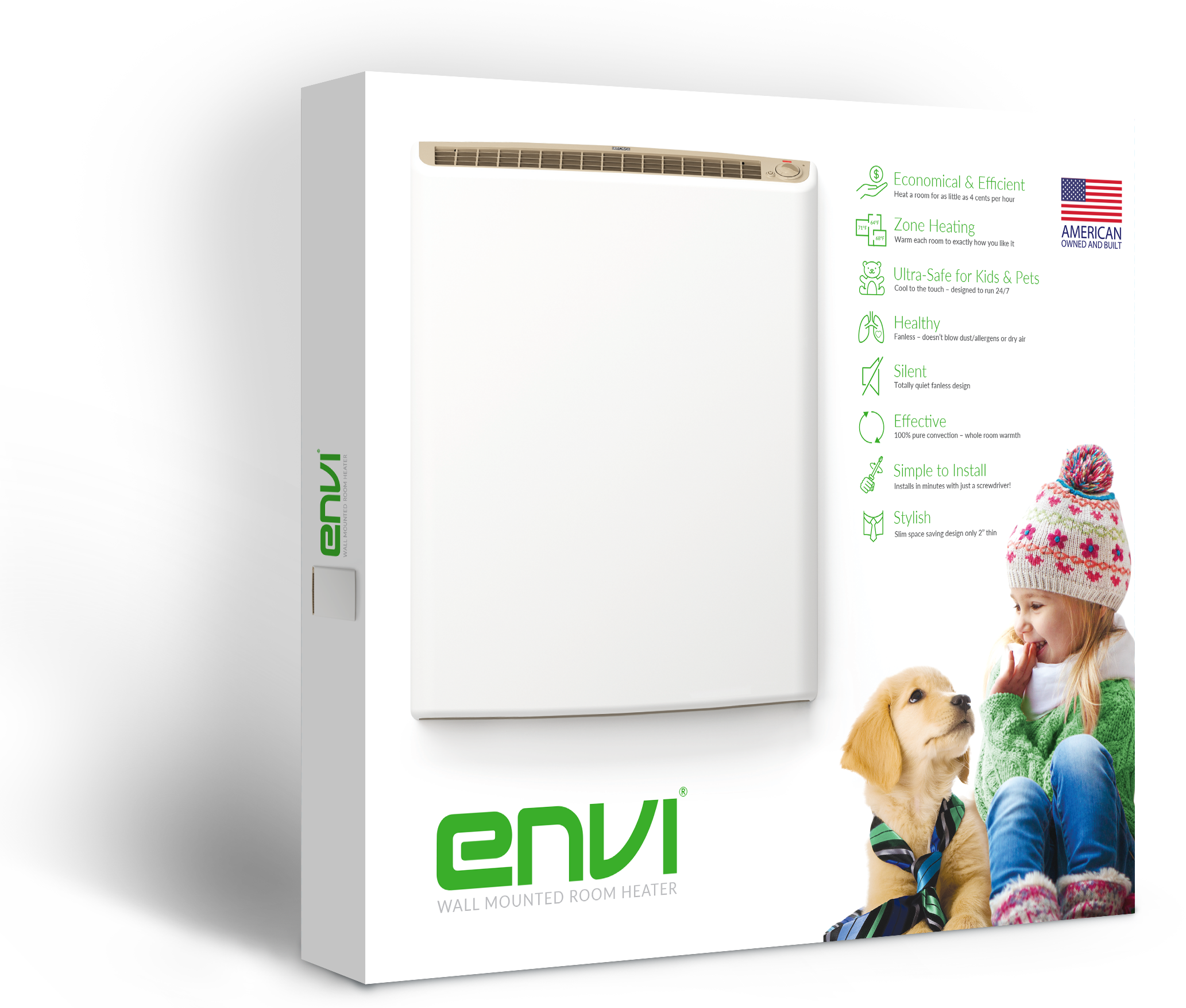Before the cold hits in the winter, you will want to find an economical, efficient electric heater to keep your evenings cozy and your mornings toasty, whether it’s for your home or commercial property. However, it’s not easy to find the middle ground between efficient heating and cost-saving— not without a handy guide that helps you choose the best electric heating solution for your space.
How Do Heaters Work?
Many furnaces are fueled by gas, oil, or fossil fuels, while smaller heaters are often powered up by electricity.
The electrical resistor is the primary component common to all electrical heating systems. When you switch a heater on, the electrical current produced heats up the nichrome wire components — or the heating coils. This electrical energy is then converted into heat as the current passes through the resistor.
Gas vs. Electric: Why Choose Electric Heaters?
There are two main types of heaters: electric and gas. Depending on your needs, one may be the better choice than the other, but electric heaters are generally the preferred option due to their benefits.
Cost
- Gas: Gas heating is more expensive regarding initial purchasing and installation. Although in the long-term, it is much more affordable to run.
- Electric: The initial purchase price of an electric heater is typically lower than that of a gas heating system. However, operation expenses can be costly.
Installation
- Gas: Unless your home or property can accommodate a chimney, you may not be able to use a gas heater. Part of what makes this heating alternative costlier than electric heaters is its installation. A gas heater is a large and complex system that requires professional installation and a chimney or flue to vent out emissions. If you get the unflued type, it needs to be placed in a large area with good airflow.
- Electric: Most electric heaters are portable and easy to install with no venting system necessary. Non-portable ones like wall-mounted electric heaters require installation, although the procedure is not as difficult or complex as their gas alternative. In fact, the installation process for some electric heaters can be so easy that you can do it by yourself.
Maintenance
- Gas: Gas furnaces require annual expert maintenance to keep them in peak condition for longer.
- Electric: Convenience and simplicity are two of the core benefits that electric heaters offer. Maintaining this type of heater doesn’t require much effort or professional knowledge; you can perform maintenance yourself. A technician may only be called if the equipment malfunctions or breaks down.
Lifespan
- Gas: With regular maintenance, gas-fired heaters can last 10 to 20 years.
- Electric: Durability is another benefit you can get from electric heaters, as they can last 20 and 30 years.
Safety
- Gas: One of the safety issues with gas heaters is the potential for a carbon monoxide leak, which can be poisonous or even fatal at high enough doses. Gas heating also produces water vapor which can cause condensation and mold problems. Gas leaks and fire are also serious concerns, though they can be kept under control with professional routine maintenance.
- Electric: Electric heaters are the safer choice for heating since they don’t combust fuel onsite. There is, however, the risk of a high-power electrical malfunction that can start a fire. Proper installation and usage, as well as occasional maintenance, can lower the risk of fire outbreaks.
Comparison Bottomline
While gas heat has its perks, it calls for an expensive upfront purchase, greater maintenance, and demanding installation conditions. Additionally, if natural gas isn’t readily available to you and given that gas prices are likely to rise, it may even become pricier.
Electric heaters offer versatility and various benefits that ensure your safety and convenience, such as their affordable purchase and installation expenses and lower maintenance requirements. You may not even have to struggle with expensive operating costs depending on the brand you get and whether your property runs on solar power.
Many heating companies have also developed, built, and offered efficient and energy-saving electric heaters to overcome high power bill concerns.
How to Choose the Best Electric Heating
You have a variety of electric heater options to choose from, such as:
- Baseboard heaters, which are affordable and space-saving units ideal for smaller rooms and hallways;
- Space heaters, portable and handy home heating units that are typically powered by electricity, or rely on their own power supply, such as propane;
- Infrared heaters, which are considered some of the safest heating solutions due to infrared radiation being eco-friendly and energy-efficient, although they are best for small rooms;
- Radiant heaters, which are versatile, easy to set up, and instantly provide heat;
- Ceramic heaters, which work by heating a built-in ceramic block and quietly radiating this heat to warm the room;
- Column heaters, an affordable, bulky style with low-noise levels which can be used for long periods;
- Fan heaters, which are portable, affordable, and quick to heat a room, though some models can be noisy;
- Convection heaters, which are a lightweight and efficient heating type that can be mounted on walls and are the preferred choice for heating large and shared spaces; and
- Panel heaters, which are similar to convectors and can be wall-mounted but are better for space-saving due to their slimmer design.
The problem with electric heaters is not that there are few choices; it’s the opposite: there are so many electric heating options on the market that it’s become an overwhelming task to pick the best one for your property. In choosing an electric heater, consider the following:
Cost
Among the many electric heating system types, fan heaters and radiant heaters are on the lower end of the price scale. Meanwhile, panel, convection, and oil heaters are generally the pricier kind. However, prices for these heater types may still vary. They can be influenced by the brand, wattage, and any additional features that increase its value.
Heat Speed and Output
While fan heaters provide instant heat as they are plugged in, oil heaters require time before heating the room.
Portability
Do you require an electric heating appliance that can be used in different rooms? Choose a model that is light enough to carry or has wheels.
Room Size and Types
One key to energy-saving and efficiency is to pair the right kind of heater with the size of the space. Too many have made the mistake of picking an incompatible heater for their rooms, leading to higher power bills and either an overheated or underheated space— both of which bring about an unwelcoming environment.
For small and medium spaces, opt for fast and consistent heating, not maximum power. Column and wall-panel heaters are excellent options in this situation. Meanwhile, larger rooms with high ceilings or rather unconventional layouts require the opposite: high-powered electric heaters. A fantastic choice would be panel and convector heaters.
For bathroom heating, it is recommended to use panel heaters as they are built to be safe, stable, and efficient. This heater style is suitable not only for bathrooms, but also for children’s bedrooms and pet-sleeping areas.
Safety
While electric heaters do not have open flames like gas furnaces, fire is still a potential risk when they are in use. It is essential for the heating system you pick to have automatic cut-off and tip-over protection features. For a heater used in an enclosed place where condensation can occur like a bathroom, drip protection is vital to ensure water doesn't get into its electrical workings.
Thermostat
A thermostat helps control the temperature that you want the space to be. Convector and panel heaters typically have timers and programmable thermostats so you can schedule the appliance to switch on at specific hours in a day, such as when you get home from work.
Watts
The higher the wattage, the higher your electric bill will be. A heating system with 2,000 - 2,400W is enough to heat a medium-sized room in general; however, take certain factors into account, like outdoor temperature, as they can affect how warm the enclosed space can actually get. Most modern heaters nowadays are built with low wattage technology yet still provide consistent, reliable heating.
What We Recommend: Envi Heaters
With all that said, eheat offers one of the best electric heating solutions in the modern market, packing in style, efficiency, and innovation: Envi.
An Envi heater is a wall-mounted, fanless, 100% pure convection space heating system. Like many of its electric heating counterparts, it is easytoinstall and userfriendly; with a D.I.Y installation kit with a mounting template built right into the packaging, all you need is a screwdriver to install it.
But unlike many of its electric heating counterparts, Envi is versatile, efficient, and environmentally friendly. It can be installed in various residential and commercial spaces, including bathrooms. You can rely on the Envi wall-mounted panel heater for prolonged use— for an indefinite period, even. This is because the heating element is encapsulated within the panel, minimizing air exposure, which means fewer maintenance issues. It also has handy features such as an automatic thermal cut-off.
Envi also promotes a healthier living environment due to being fanless, having low wattage, and a low-temperature heating core. It is safe for residences housing children, senior citizens, and pets thanks to its lack of exposed elements and surface temperature of approximately 90°F.
For more information about our wall-mounted space heaters and our other products, feel free to get in touch with us today.











